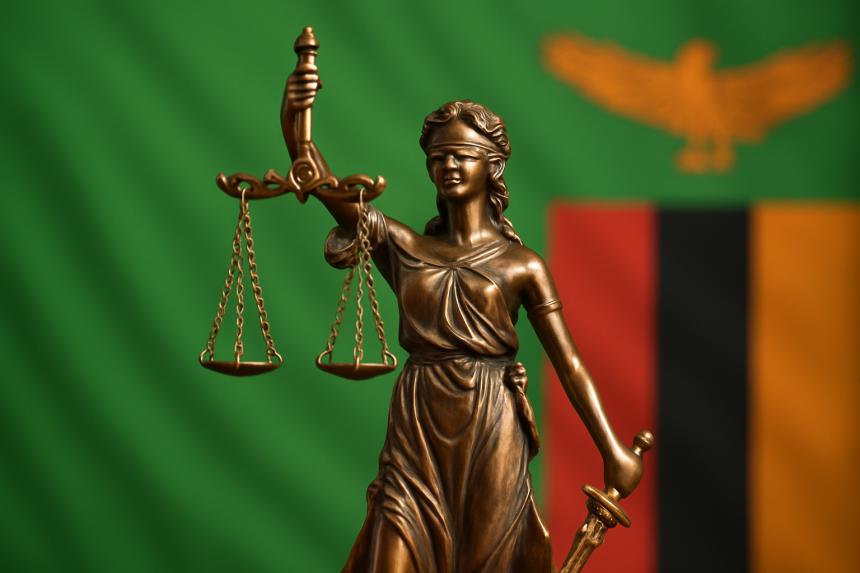By Brian Matambo
LUSAKA – Zambia once stood tall in Africa as a model of democratic progress, a country that demonstrated the possibility of peaceful political change in a continent often scarred by authoritarian entrenchment. Yet today, that reputation is under heavy strain. At the center of the storm is Bill 7, the Constitution of Zambia (Amendment) Bill of 2025, a proposal that the Constitutional Court has already declared unconstitutional, but which President Hakainde Hichilema is forcing back to Parliament through the Speaker.
The President insists the Bill is about inclusivity and reform. But the reality, as a leaked strategy document titled UPND Political Strategy Elections shows, is far darker. This confidential paper, prepared for inner party use, explicitly outlines how Bill 7 is central to the ruling party’s blueprint to tilt the 2026 elections in its favor. In the document, the party frames the Bill as a tool to multiply seats in its strongholds, guarantee extra parliamentary numbers through proportional representation, and eliminate the risk of losing by-elections.
The strategy also reveals something even more troubling. Beyond re-engineering the electoral map, the UPND intends to constrain the Patriotic Front, its main opponent, from fully participating in the 2026 general elections. The leaked paper acknowledges the enduring strength of PF structures in Northern, Luapula, and Muchinga, and it openly contemplates ways to neutralize PF’s ability to capitalize on urban discontent in Lusaka and the Copperbelt. The implication is unmistakable: Bill 7 is not only about recalibrating Parliament, but also part of a broader plan to suffocate the opposition and reduce Zambia’s democracy to a contest managed from State House.
At the heart of Bill 7 lies a cancer on the constitutional order. The Bill proposes to expand Parliament from 156 to 211 seats, with most of the new constituencies drawn from UPND’s loyal strongholds in Southern, Western, and Northwestern provinces. In practical terms this grants the ruling party an immediate cushion of 15 to 20 extra safe seats before a single ballot is cast. This is not representation; it is gerrymandering hidden behind the language of delimitation.
The Bill also introduces a mixed-member proportional system with reserved seats for women, youths, and persons with disabilities. On paper this looks progressive, but in practice it rewards the largest party with automatic additional seats, ensuring that UPND collects the lion’s share simply by virtue of incumbency. It is a structural bonus that insulates them from losing ground in urban battlegrounds where anger over inflation, unemployment, and endless power cuts is growing.
Even more corrosive is the elimination of by-elections for party seats. Under Bill 7, when a Member of Parliament from a political party resigns or dies, the party itself appoints a replacement. The people are completely cut out. Voters will no longer have the chance to pick the parliamentary representative of their choice. UPND is planning on de-franchising Zambians in broad daylight.
Bill 7 further inflates executive power by increasing nominated Members of Parliament from eight to ten, giving the President an even greater margin to pad slim majorities with loyalists. These provisions turn the electoral playing field into a tilted surface where one party’s comfort is protected while the voices of others are muffled.
The leaked UPND strategy document treats Bill 7 not as a neutral reform but as a vote-to-seats multiplier. It models electoral outcomes under both the current 156-seat Parliament and the expanded 211-seat version, concluding that on the smaller map UPND risks near-parity in a worst-case scenario, but on the larger map it can secure a commanding majority even with only modest delivery of promises. The Bill is therefore central to the ruling party’s calculation of how to cling to power in 2026.
This attempt to reintroduce a Bill that the Constitutional Court has already rejected not only violates the doctrine of constitutional supremacy, but it also defies the principle of res judicata, the notion that once the Court has ruled, the same matter cannot simply be recycled. It also offends the spirit of Zambia’s democratic tradition, where constitutional amendments must be subjected to genuine public consultation. Civil society, the Law Association of Zambia, and Church mother bodies have already warned that Bill 7 strips power from citizens and hands it to the ruling elite.
Beyond its text, Bill 7 must be seen as part of a larger pattern of regression under President Hichilema’s UPND. Civil society organizations have reported narrowing space for participation, critics have faced intimidation, and opposition figures complain of selective arrests and restrictions on assembly. International observers note that the government has become increasingly intolerant of dissent, despite promising openness and accountability in 2021.
Zambia is at a crossroads. To allow Bill 7 to pass would be to accept the slow poisoning of multiparty democracy by structural manipulation. It would mean turning the National Assembly into a chamber designed not by voters but by incumbents determined to guarantee themselves victory. The Constitutional Court has already spoken. The people of Zambia must now speak louder.
If the Law Association of Zambia, civil society organizations, and the Churches act together, they can remind the government that power belongs to the people. If they fail, Bill 7 may become the precedent that allows every future ruling party to rewrite the Constitution in its own image. Zambia’s reputation as a beacon of African democracy is at stake.



Leave a Reply